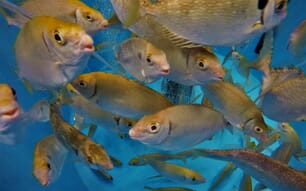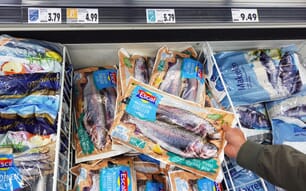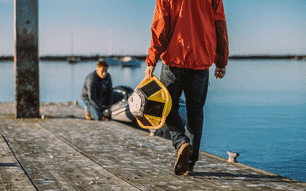The new body, modelled on the highly successful and world leading Marine Stewardship Council (MSC) for wild-caught seafood, will be responsible for hiring independent, third-party auditors to certify farms that are in compliance with the standards.
WWF is funding the development of a business plan for this new venture, which is expected to be in operation within two years, and will contribute funding to implement the plan.
More than 2,000 farmers, conservationists, government officials and others participate in the open Aquaculture Dialogue meetings – making this the world’s most inclusive and transparent process for creating measurable, performance-based standards for aquaculture. WWF, which coordinates the Dialogues, is one of the stakeholder groups engaged in the process.
* "These new standards will raise the bar in the industry" |
|
WWF-International Director General James Leape
|
"This is an unprecedented effort to ensure that future aquaculture is environmentally sustainable, and also well positioned to meet the growing demand for seafood worldwide," said WWF-International Director General James Leape.
"These new standards will raise the bar in the industry, giving consumers assurance that their food purchases are helping to protect the environment."
Over the next year, draft standards for minimizing the key environmental and social impacts associated with aquaculture will be completed for nine aquaculture species that have the greatest impact on the environment, highest market value and/or the heaviest trading in the global market. They are salmon, shrimp, trout, pangasius, abalone, mussels, clams, oysters and scallops. Draft standards for tilapia were posted for public comment in September 2008 and are expected to be completed this spring.
"This investment aligns perfectly with WWF’s goal of protecting the world’s oceans and coastal habitats while providing innovative paths for feeding the world more efficiently and sustainably," said WWF-US President Carter Roberts,
"With a credible entity in place for certifying farmed seafood, the seafood industry can continue to grow but in a way that is environmentally responsible."
A key component of the business plan will be following the International Social and Environmental Accreditation and Labelling (ISEAL) Alliance’s guidelines for certification programs – the world’s most reputable guidelines for addressing social and environmental issues. None of the existing aquaculture certification schemes have governance structures that are in compliance with ISEAL. The MSC and Forestry Stewardship Council, also co-founded by WWF, are ISEAL compliant.




